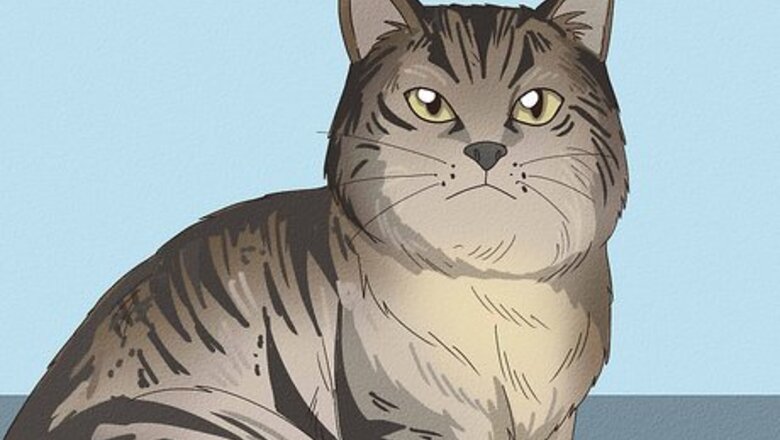
views
Can house cats and bobcats reproduce?
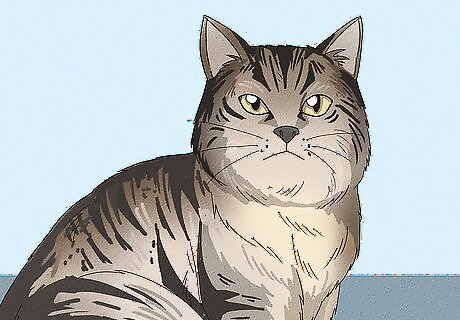
There’s no verifiable evidence of a domestic cat/bobcat hybrid. While stories and legends abound, there’s no scientific proof that mating could produce kittens. But your cat is still adorable, even if it isn’t part bobcat! There have been multiple cases where people rescued a kitten they found, only to have a veterinarian drop the shocking news: surprise, it's a bobcat! Domesticated cats don’t care for monogamy; they often mate with multiple partners. Even if a house cat has a litter after a liaison with a bobcat, it isn’t proof that he’s the daddy. Scientists have even tried to produce a domestic cat/bobcat hybrid via in vitro fertilization. Sadly, their attempts to create a new hybrid cat breed failed.
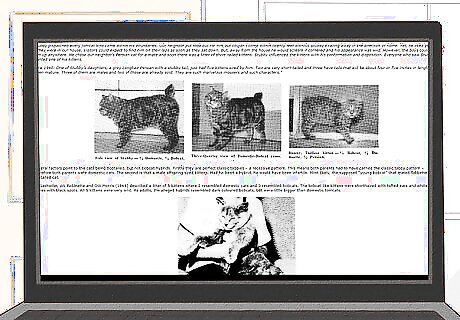
So far, genetic tests haven’t revealed any bobcat/domestic cat hybrids. Commercial DNA barcoding isn’t yet available for specifically identifying bobcat/domestic cat hybrids, but DNA can be compared to markers for bobcat genes as well as domestic cats. In 2017, Dr. Joy Halverson of Zoogen Labs created a definitive DNA test to screen for bobcat genes in domestic cats. However, commercial usage of the test isn’t available. Mitochondrial DNA tests can determine which species a cat’s mama is. One way researchers can determine a feline’s heritage is by looking for a specific genomic sequence: any feline with domestic cat parentage will have multiple copies of the endogenous feline leukemia virus (enFeLV). Science!
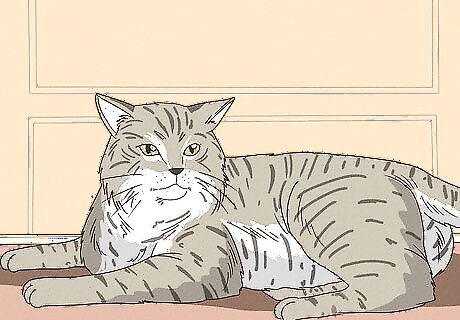
Rocky the famous “hybrid” was likely just a bobcat. In 2014, a 38-pound (17.25 kg) pet feline named Rocky made the news. After Rocky escaped from his enclosure on 4 separate occasions, a judge ordered a DNA test to determine whether Rocky was a bobcat or a hybrid. The results? Rocky’s mama was pure bobcat. In an epic plot twist, the judge declared the results of the mitochondrial DNA test “inconclusive,” since it only examined the maternal line and provided no info about Rocky’s father. The judge ruled that Rocky could stay at his home. In yet another plot twist, Rocky escaped once again in 2015. After fearful neighbors called the police, Rocky’s owner permanently surrendered her wild child to the zoo. Some news reports claimed Rocky was a fifth-generation domesticated hybrid. If that were the case, chonky Rocky would have been closer to the size of an average house cat.
Signs a Kitten is Actually a Bobcat
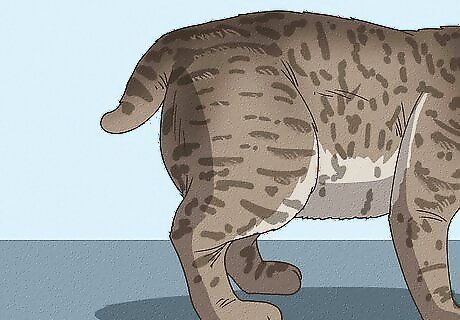
Thick strong hind legs. Check out its physique. Bobcat kittens look like bodybuilders next to standard kittens! Even young bobcats will have a “stacked and muscled” appearance.
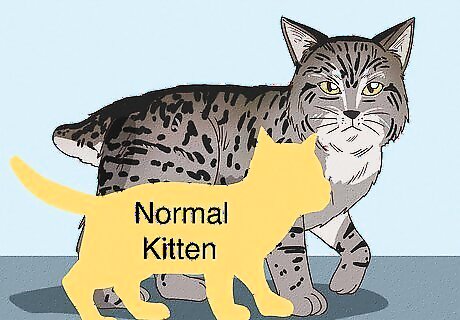
Twice the size of a regular kitten. Newborn bobcats are about 8 inches (20 cm) long and weigh 8-9 ounces (226-255 g). In comparison, the average domesticated kitten is only about 3 inches (7.5 cm) long and weighs 3-5 ounces (85-142 g) at birth.
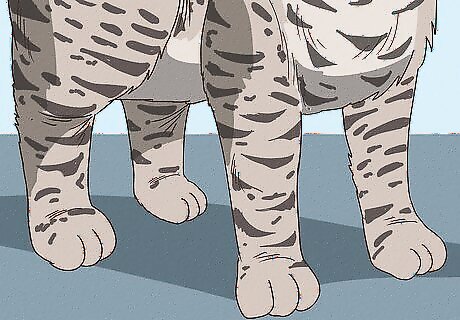
Black leg stripes or spots. A bobcat kitten sports black spots or stripes on its legs. Their fur patterns can vary from tabby-like stripes to heavy spots.
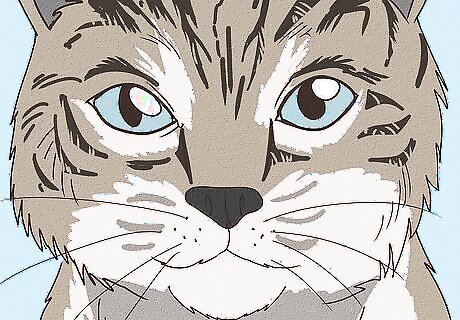
Furry cheeks and a pointed chin. A bobcat’s wide, flat face has longer fur on its cheeks (called a ruff). These kittens also have high-contrast facial markings and a sweet pointed chin.
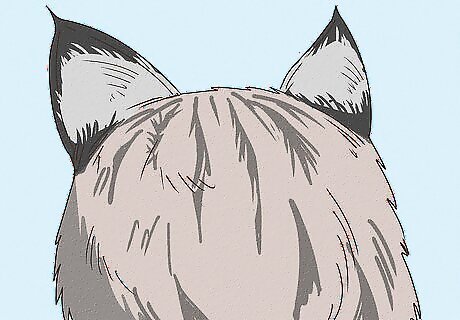
White spots on ears. A bobcat’s ears are big and black, and they feature a white spot on the back of each ear. A bobcat kitten may or may not have ear tufts, depending on its age. Younger kittens may not have grown the distinctive ear tufts bobcats are known for.
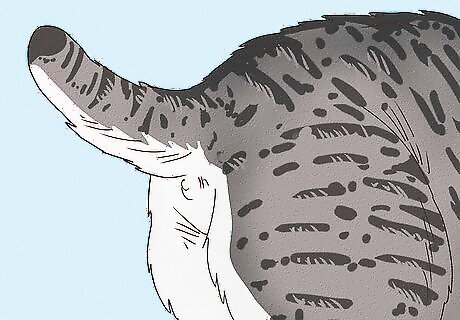
Short tail. Bobcats have stubby tails with a white underside. While there are some domestic cat breeds with bobbed tails, a bobcat’s tail will also have a black tip.
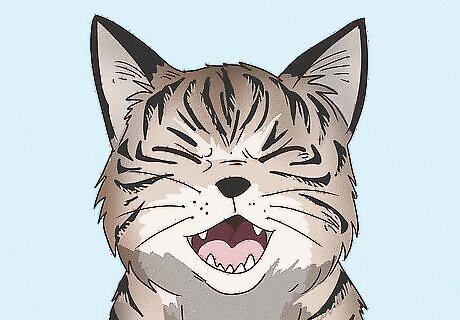
Strange cry. There’s a hard edge to the cry of a bobcat kitten. The sharp sound may disturb domesticated house cats, so if other cats nearby seem spooked, you may have found a bobcat kitten! Bobcats also chortle and make birdlike chirps. It’s pretty adorable!
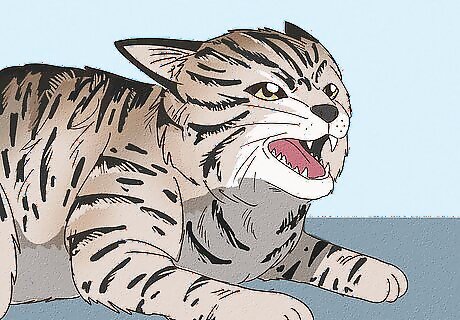
Fierce personality. Bobcats are much more aggressive than a typical house cat, and a wild baby bobcat will likely scratch and struggle when you pick it up.
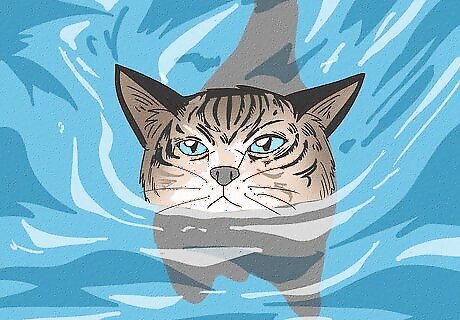
Not fearful of water. While both domesticated cats and wildcats can swim, it’s no secret that most house cats prefer not to. Bobcats are more comfortable around water and are excellent swimmers.
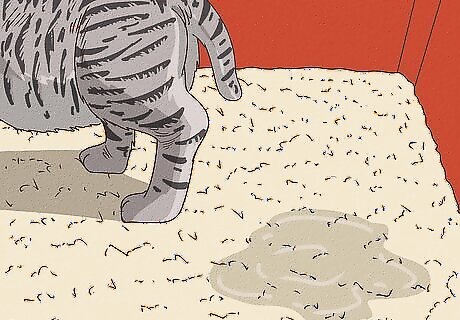
Strong-smelling urine. The smell of domestic cat urine is downright pleasant compared to the stench of bobcat urine. It’s been described as “rotten meat combined with sweat.” If you find yourself gagging after your kitten uses the litter box, it might be a clue that you have a bobcat on your hands! If your cat’s urine has a horrific odor, please take it to the vet for a checkup ASAP.
Do bobcats and domestic cats ever mate?
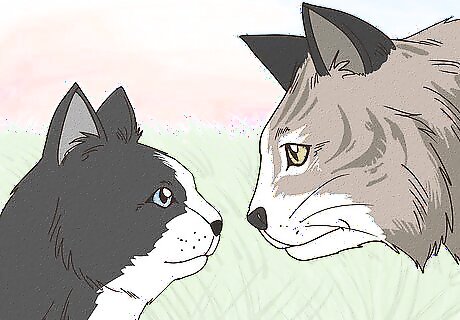
Domestic cats and bobcats are physically capable of hooking up. Although bobcats (Lynx rufus) and domestic cats (Felis silvestris catus) are two different species, they’ve been observed mating during arranged “dates” while in captivity–ooo-la-la! However, it’s rare under natural circumstances. Bobcats are solitary, predatory wildcats. During their winter mating season, you might hear their eerie screams. It’s kinda spooky!
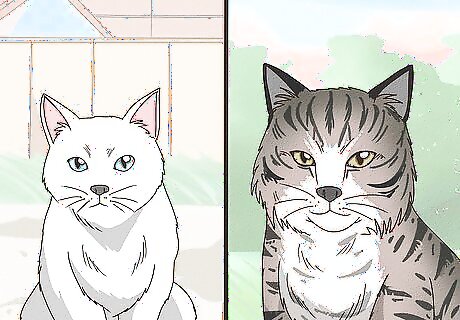
The two species don’t hang out together. Urban sprawl has led to some overlap between the areas bobcats roam and the places domestic cats chill, but bobcats prefer to avoid civilization. So, mating opportunities don’t arise very often. Where do bobcats hang out? Their habitat stretches from Mexico up to southern Canada. These adaptable animals are found in forests, coastal swamps, and desert scrub lands.
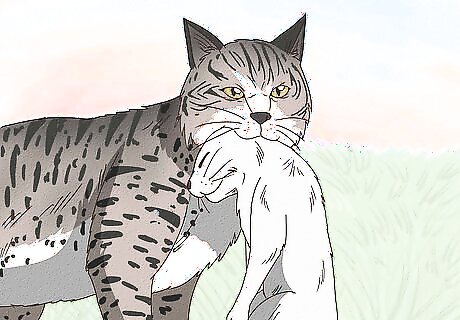
They’re just not that into each other. Although we humans might see a lot of similarities between house cats and bobcats, the truth is that their behaviors are pretty different. Even if a cat is feral, a bobcat won’t usually recognize it as an attractive breeding partner. In fact, a bobcat may be more interested in eating a house cat than seducing it!
Aren’t Pixie-bobs descended from bobcats?
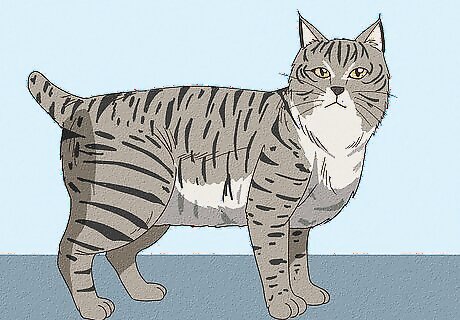
Pixie-bobs are bred to look like bobcats, but don’t have bobcat DNA. This sturdy breed looks so similar to a bobcat, it’s no wonder people assumed wildcat parentage was a given! However, the legend that Pixie-bobs have bobcat blood is simply a captivating myth. The Pixie-bob story goes back to the mid-1980s, when Carol Ann Brewer obtained a large male cat who allegedly had a bobcat daddy. Brewer bred this husky boy with a domestic tabby, then named one of the kittens Pixie. Ultimately, DNA testing had the final word in this debate: Pixie-bobs are confirmed to have 100% domesticated cat lineage.
Can I keep a bobcat as a pet?
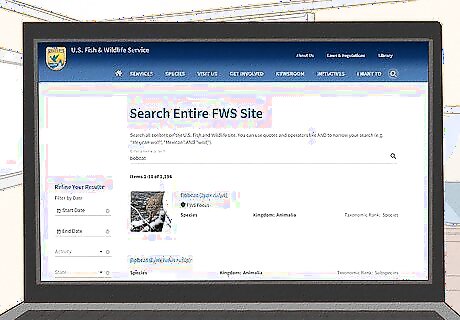
It isn’t legal to keep a bobcat as a pet in most states. However, there are a few states that are perfectly fine with it, while some other states will give you the OK as long as you obtain an exotic pet permit first. Wild! If you live in one of the following states, you’re in luck! It’s legal to own a bobcat in Alabama, Nevada, North Carolina, South Carolina, and Wisconsin. With the proper permit, you can also adopt a bobcat in Arizona, Delaware, Indiana, Maine, Mississippi, Missouri, North Dakota, Oklahoma, Pennsylvania, Rhode Island, South Dakota, or Texas. The procedures and costs for scoring a permit vary depending on where you live. In the US, you can find additional information on the U.S. Fish & Wildlife Service website, or on your state’s Fish & Game website.
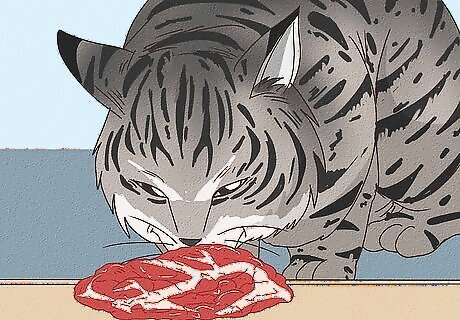
Caring for a bobcat is very different than caring for a house cat! Bobcats aren’t domesticated animals; even if bobcats are bred and raised in captivity, they never lose their wild streak. Since bobcats are armed with sharp teeth and claws, they shouldn’t be trusted around young children. Play it safe, and keep kids away. When raising a bobcat, kitty kibble won’t cut it. A bobcat needs a raw meat diet; chicken, rabbit, and turkey are safe food options.
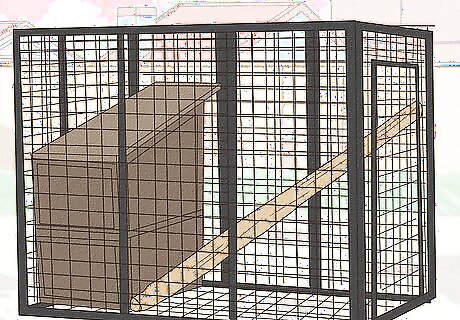
Bobcats require a strong outdoor enclosure with plenty of space to exercise. To keep your bobcat happy, include a den that’s safe from the elements, as well as ramps or perches to climb. At a minimum, a bobcat’s enclosure should be at least 24 x 24 x 12 feet (approximately 7.5 x 7.5 x 3.5 meters), and made of at least 8-gauge welded wire.
What would a house cat/bobcat hybrid look like?
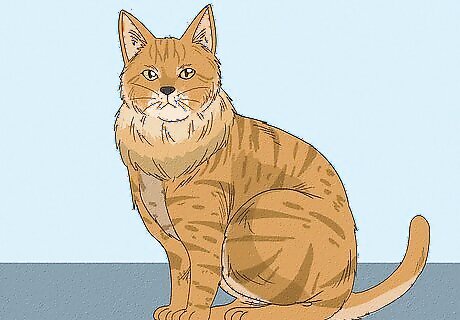
A hybrid might look similar to a Maine Coon cat. Although there’s currently no proof that bobcats can breed with domesticated cats, it’s fun to imagine what a hybrid might look like. There’s speculation that a hybrid would share some traits with the hefty Maine Coon domestic breed. Although Maine Coons aren’t descended from bobcats, they do have big, tufted ears, as well as furry cheeks! Perhaps a domestic hybrid would share those characteristics as well? An average house cat weighs around 10 pounds (4.5 kg), while a bobcat weighs up to 40 pounds (18 kg). A hybrid might be about the same size as a Maine Coon cat, which weighs up to 25 pounds (11.5 kg).

















Comments
0 comment